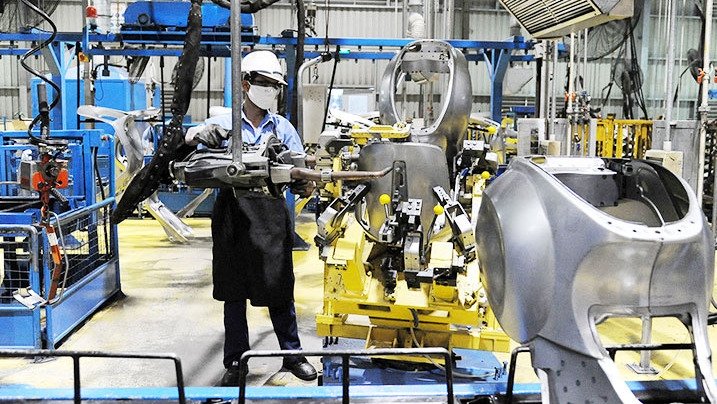
|
Vietnam’s business climate has been recognised by the business community and international organisations for having made significant improvements for many consecutive years. |
|
Specifically, the country ranked 67/141 in the World Economic Forum’s Global Competitiveness Index 4.0 in 2019, up 10 positions from 2018; ranked 44/132 in the WIPO’s Global Innovation Index; ranked 86 in the UN’s eGovernment Index in 2020, up 2 places from 2018; and ranked 51/165 in the UN’s Sustainable Development Index in 2021, up 37 places from 2016. It is notable that nearly 60% of enterprises reported substantial improvements in the business climate across ten areas, with the establishment of new enterprises and access to electricity seeing the largest improvements. Thanks to such reforms, Vietnam is regarded as an attractive investment destination and a dynamic and highly open economy with an economic growth rate among the fastest in the world. But experts have noticed that institutional reform in Vietnam is stalling due to the impacts of COVID-19. Many business sectors have seen a reduced number of requirements, but the reduction is not yet substantive, while online public services in many localities remain superficial and do not meet the needs of enterprises. As a result, many criteria did not see improvement or even witnessed lower scores or rankings, such as innovation, sustainable development, rights to property, and perception of corruption. In the face of such a situation and with the spirit of accompanying enterprises and regarding institutional reform and improving the business climate as the key to economic growth and recovery, the government and the Prime Minister have promptly introduced many policies and solutions since 2020 to address the difficulties facing enterprises, helping to tap into social resources for economic development. Most recently, the National Assembly adopted a package worth 350 trillion VND (15.3 billion USD) to be disbursed over the two years, from 2022-2023, which is expected to be an important foundation for Vietnam’s socio-economic recovery and development. In order to successfully implement institutional reform and improve the business climate for rapid recovery, ministries, agencies and localities need to be serious in undertaking the tasks assigned to them in the government’s relevant resolutions on improving the business climate and enhancing the national competitiveness. The role and responsibility of those in leadership positions in understanding enterprises’ difficulties should be regarded as a decisive factor in dealing with such difficulties. They are concrete actions to prevent the reform process from stalling. In addition, the government needs to direct the relevant ministries and agencies to not introduce additional obstacles and go against the previous reforms when they promulgate new legal documents or amend existing ones so as to maintain the momentum of reform. They need to promptly fix the regulations that have been hindering enterprises and increasing the costs of business and investment. Source: Nhan Dan Online |

